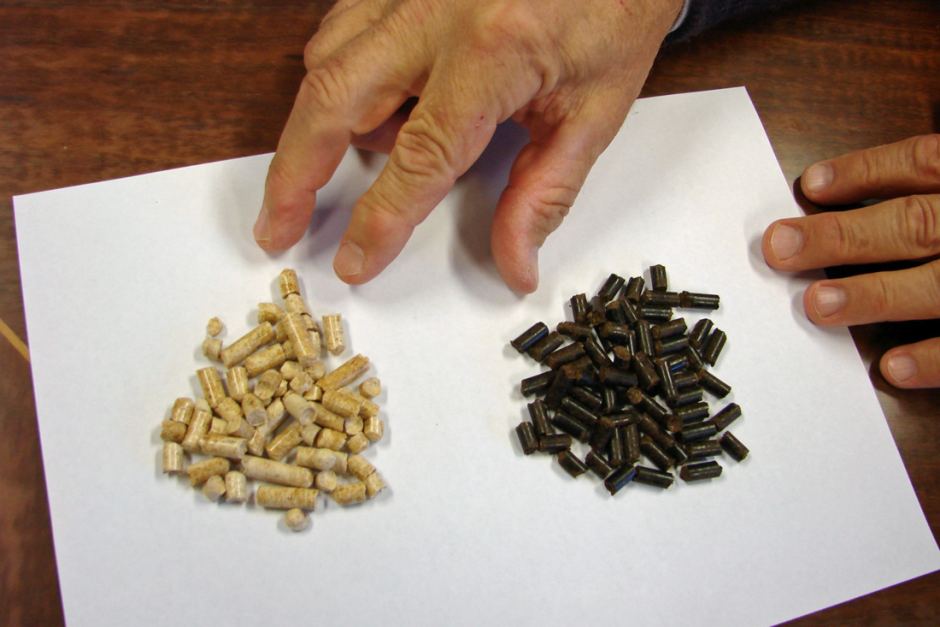A renewable replacement for black coal burned in thermal power stations could be made by converting Tasmanian plantation wood into a pelletised biomass fuel.
Private equity firm New Forests has started a $5 million feasibility study into a $130 million wood pellet plant for Tasmania’s Tamar Valley.
If approved, New Forests’ hardwood plantation subsidiary, Forico, would supply 100 per cent FSC-certified plantation hardwood and softwood to the bioenergy pellet plant, according to Forico chief executive Bryan Hayes.

Black energy-dense biomass pellets could be used to replace black coal.
“These pellets are able to go into an existing power plant without any modifications whatsoever,” Mr Hayes said.
“These black pellets will directly substitute for thermal coal in existing black coal-fired power plants in Japan.
The proposal involves making an energy-dense black wood pellet from sawmill residues and woodchips milled to less than 5mm in size.
Mr Hayes said if wood particles were exposed to heat and pressure, the cell structure could be broken down.
He said steam could be used to ‘cook’ the wood particles at 200 degrees Celsius under 20 atmospheres of pressure. The material could then be forced through an extrusion plate to form a high density, water-repellent pellet replacement for fossil fuel.
Mr Hayes said the feasibility study would look at the technology needed to manufacture at least 225,000 tonnes of the black biomass pellets a year in Tasmania. The study also would assess the commercial viability of establishing the black pellet plant on a disused woodchip export mill site at Long Reach.
“If it’s not commercially viable it won’t happen,” Mr Hayes said.
Mr Hayes said when the feasibility study was completed in March, New Forests would progress quickly if the project stacked up. He said after applying for environmental approval from the Government, construction could start as early as the middle of 2017.
“We would hope the plant could be constructed and ready for first operation in December 2018,” Mr Hayes said.




